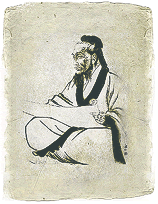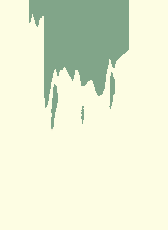What is Oriental Medicine?

Oriental Medicine is a comprehensive medical system that has been used to diagnose, treat and prevent illnesses for over 5000 years. It includes not only Acupuncture but also Chinese herbology, bodywork, dietary therapy and exercise, and is based on traditional Oriental medical principles.
Oriental Medicine predates western medicine by thousands of years, and as a system stands on its own as a primary care modality. It is grounded in ancient Daoist philosophies concerning universal patterns of movement and balance, and unlike the predominant “localized” approach, it views health holistically as interrelated spheres of influence: mind, body and spirit; individuals and their environments; and a constantly interactive web of experience, awareness, and intention.
 Acupuncture, Chinese Herbs and Bodywork strengthen one’s physical and emotional body – to help prevent disease, control pain, soothe and alleviate chronic conditions, and enhance the quality and longevity of life. Practitioners do not treat a diagnosed disease alone – the focus is instead to discern patterns and conditions which harbor and perpetuate imbalances that manifest as disease and illness. The many modalities employed in Oriental Medicine influence energetic pathways – “meridians” – bringing the whole being into equilibrium with both internal and external influences. Current trends in health care show that by integrating these eastern practices with western (allopathic) medicine, patients are better able to enhance and deepen the effectiveness of their efforts to live healthier, more balanced and energetic lives.
Acupuncture, Chinese Herbs and Bodywork strengthen one’s physical and emotional body – to help prevent disease, control pain, soothe and alleviate chronic conditions, and enhance the quality and longevity of life. Practitioners do not treat a diagnosed disease alone – the focus is instead to discern patterns and conditions which harbor and perpetuate imbalances that manifest as disease and illness. The many modalities employed in Oriental Medicine influence energetic pathways – “meridians” – bringing the whole being into equilibrium with both internal and external influences. Current trends in health care show that by integrating these eastern practices with western (allopathic) medicine, patients are better able to enhance and deepen the effectiveness of their efforts to live healthier, more balanced and energetic lives.
Oriental Medicine Treats:
Chronic Illnesses
Insomnia
Fatigue
Allergies
Immune system deficiency
Eye, ear, nose and throat disorders
Supportive therapy for other chronic and painful debilitating disorders
Diabetes/Hypoglycemia
Fibromyalgia & CFS
Thyroid Conditions
Chemotherapy/radiation side effects
Attention Deficit Disorder/ADD
Preventative Health
Children’s Health
Liver Problems
Shingles
Dizziness
Addictions
Smoking
Drug Addiction
Alcoholism
Anxiety & Depression
Fatigue
Stress/Tension
Anxiety/Depression
Circulatory Disorders
Hypertension
Palpitations
Heart Problems
Angina pectoris
Stroke
Arteriosclerosis
Gastrointestinal Disorders
Constipation/Diarrhea
Hemorrhoids
Indigestion/gastritis
Colitis
Food allergies
Anorexia
Ulcers
Gall Bladder Disorders
Gynecological Disorders
Infertility/men & women
Premenstrual symptoms/PMS
Mastitis
Gynecological disorders, irregular/painful mense
Fibroids
Pre-Delivery care
Endometriosis
Sexual dysfunction
Menopause
Post-partum care
Morning sickness
Pain Syndromes
Shoulder pain
Tendonitis/Neuralgia
Neck pain/stiffness
Paralysis/Numbness
Toothaches
Rheumatism
Knee pain
Arthritis/Joint problems
Headache/Migranes
Sports Injuries
Back & Hip pain/Sciatica
Carpal Tunnel Syndrome
Respiratory Disorders
Sore throat
Allergies/Hay Fever
Colds/Flu
Sinusitis
Asthma
Cough/Bronchitis
Skin Disorders
Acne
Herpes
Rashes/Urticaria
Urogenital Disorders
Bladder/Kidney problems/stones
Sexual dysfunction/infertility
Urinary problems/UTI
Prostate problems
Stress incontinence
Chronic bladder infection
What To Expect
The initial visit involves an extensive intake to assess medical history, diet, lifestyle, stress, emotions, environmental influences and symptomatology. Oriental medicine diagnoses and treats syndromes rather than diseases.
Diagnostic procedures usually include specific questions about physical functions and mental processes, examination of tongue and pulses, and some palpation to detect areas of deficiency or stagnation. Unique to this medicine is an examination of the patient’s tongue and the taking of a patient’s pulses. These methods allow the practitioner to better understand the internal environment of the patient. Both are more intricate than with Western models. For example, pulse-taking involves six pulse positions allowing the practitioner to understand all 12 meridians. The tongue can show internal heat or cold, deficiency, excess conditions, etc.
 Depending on patient preferences and indicated treatment protocols, massage, acupressure, acupuncture, heat therapy, essential oils, cupping, or various other techniques may be applied to achieve longer-lasting results in a shorter amount of time. Individually-tailored granular herbal formulas may be suggested, and dietary/exercise recommendations recommended for daily maintenance between visits.
Depending on patient preferences and indicated treatment protocols, massage, acupressure, acupuncture, heat therapy, essential oils, cupping, or various other techniques may be applied to achieve longer-lasting results in a shorter amount of time. Individually-tailored granular herbal formulas may be suggested, and dietary/exercise recommendations recommended for daily maintenance between visits.
Subsequent visits last 45 minutes to an hour, and the frequency of treatments will vary with each individual and their needs. Acute syndromes might need two to three treatments per week while the general protocol for treatment of chronic syndromes is four to six weekly treatments. Once a patient realizes satisfactory results from treatment, they are encouraged to maintain a seasonal maintenance schedule in order to stay in balance.
Many conditions may be alleviated very rapidly by Acupuncture and Oriental medicine. However, some conditions that have developed over a course of years will be relieved only with slow, steady progress. As in any form of healing, the patient’s attitude, diet, determination and lifestyle will affect the outcome of a course of treatment. Patients are encouraged to actively participate in their healing process. Although Oriental medicine can treat most conditions, there are circumstances that can be dealt with more effectively by Western medicine. In such cases, I will recommend you contact a Western medical doctor. Acupuncture and Oriental medicine should be seen as complementary to Western medicine.


